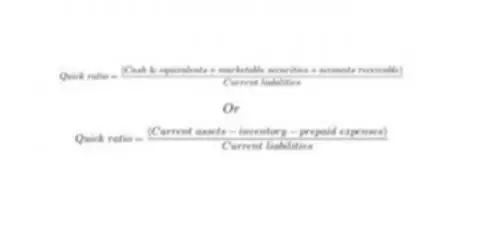
Investors should be skeptical about non-GAAP measures, however, as they can sometimes be used in a misleading manner. IFRS is a standards-based approach that is used internationally, while GAAP is a rules-based system used primarily in the U.S. IFRS is seen as a more dynamic platform that is regularly being revised in response to an ever-changing financial environment, while GAAP is more static. The Securities and Exchange Commission (SEC), the U.S. government agency responsible for protecting investors and maintaining order in the securities markets, has expressed interest in transitioning to IFRS. However, because of the differences between the two standards, the U.S. is unlikely to switch in the foreseeable future.
- Investors should be skeptical about non-GAAP measures, however, as they can sometimes be used in a misleading manner.
- We also support the memorandum of understanding between the IASB and FASB to work together on converging IFRS and U.S.
- Generally Accepted Accounting Principles (GAAP or U.S. GAAP, pronounced like “gap”) is the accounting standard adopted by the U.S.
- The importance of GAAP lies in the uniformity, comparability, and transparency of financial documents.
The materiality principle refers to the misstatement in accounting records when the amount is insignificant or immaterial. Because of the materiality principle, financial statements usually show amounts rounded to the nearest dollar. In 2006, the FASB began working with the International Accounting Standards Board (IASB) to reduce or eliminate the differences between U.S. GAAP and the International Financial Reporting Standards (IFRS), known as the IASB-FASB convergence project.[15] The scope of the overall IASB-FASB convergence project has evolved over time. The IASB and FASB issued converged standards for accounting topics including Business combinations (2008), Consolidation (2011), Fair value measurement (2011), and Revenue recognition (2014).
Similar to the matching principle, the revenue recognition principle accurately reports income, or revenue, when the sale was made, even if you bill your customer or receive payment at a later time. Generally accepted accounting principles, or GAAP, are standards that encompass the details, complexities, and legalities of business and corporate accounting. The Financial Accounting Standards Board (FASB) uses GAAP as the foundation for its comprehensive set of approved accounting methods and practices. Accounting principles are the rules and guidelines that companies and other bodies must follow when reporting financial data. These rules make it easier to examine financial data by standardizing the terms and methods that accountants must use.
What Are Generally Accepted Accounting Principles?
We don’t guarantee that our suggestions will work best for each individual or business, so consider your unique needs when choosing products and services. This principle states that you must adhere strictly to the established GAAP rules and regulations. This principle assumes that a company has enough resources necessary to operate until it provides evidence otherwise. The principle of conservatism is the other GAAP principle that allows the accountant to use their best judgment in a situation. It’s important here for the accountant to be empowered to use their professional opinion.

As a small business, you will need to meet federal, state, and local tax obligations. Depending on your business structure and location, the amount of tax you have to pay will vary. See our overall favorites, or choose a specific type of software to find the best options for you. Similarly, immaterial expenses can be recognized at the time of purchase, but material expenses must be depreciated over time.
What is GAAP?
While creating financial reports, accounting professionals must strive to disclose all situations, circumstances, and events that are relevant to financial statement users. The AIA initially recommended 5 basic principles, but additional ones were added to the list over the years. They’re the foundation of all accounting standards in the U.S. and elsewhere, including GAAP standards. The Codification is effective for interim and annual periods ending after September 15, 2009. All existing accounting standards documents are superseded as described in FASB Statement No. 168, The FASB Accounting Standards Codification and the Hierarchy of Generally Accepted Accounting Principles. All other accounting literature not included in the Codification is non-authoritative.
This principle is especially important because it ensures that users and readers of the financial statements are not misled by a lack of information. Whenever a generally accepted accounting principle makes it into the news, it is almost without fail the full disclosure principle. Or, more specifically, it’s because of failure to follow the full disclosure principle. Always check your financial statements for dates, and make sure the information reported on your financial statements makes sense for the dates encompassed by the report. GAAP is not the international accounting standard, which is a developing challenge as businesses become more globalized. The International Financial Reporting Standards (IFRS) is the most common set of principles outside the United States.
Principles
GAAP results in straightforward and understandable financial reports that investors and regulators can easily use to assess a business’s financial standing. If a corporation’s stock is publicly traded, its financial statements must follow rules established by the U.S. The SEC requires that publicly traded companies in the U.S. regularly file GAAP-compliant financial statements in order to remain publicly listed on the stock exchanges. GAAP compliance is ensured through an appropriate auditor’s opinion, resulting from an external audit by a certified public accounting (CPA) firm.
Time period principle
According to the Financial Accounting Foundation, all 50 states adhere to GAAP and many require that local entities, such as counties, cities, towns, and school districts, do so as well. GAAP may be contrasted with pro forma accounting, which is a non-GAAP financial reporting method. In other countries, the equivalent to GAAP in the U.S. is the International Financial Reporting Standards (IFRS). However, the FASB and the IASB continue to work together to issue similar regulations on certain topics as accounting issues arise. For example, in 2014, the FASB and the IASB jointly announced new revenue recognition standards.
Going concern principle
In addition, non-compliance with GAAP can result in fines, penalties, and reputational damage. This principle states that all parties involved in reporting financial data are expected to act honestly and in good faith. The focus of this principle is that there should be consistency in the procedures used in financial reporting. These are separate from the 10 accounting principles listed above, but there may be some overlap between the two lists.